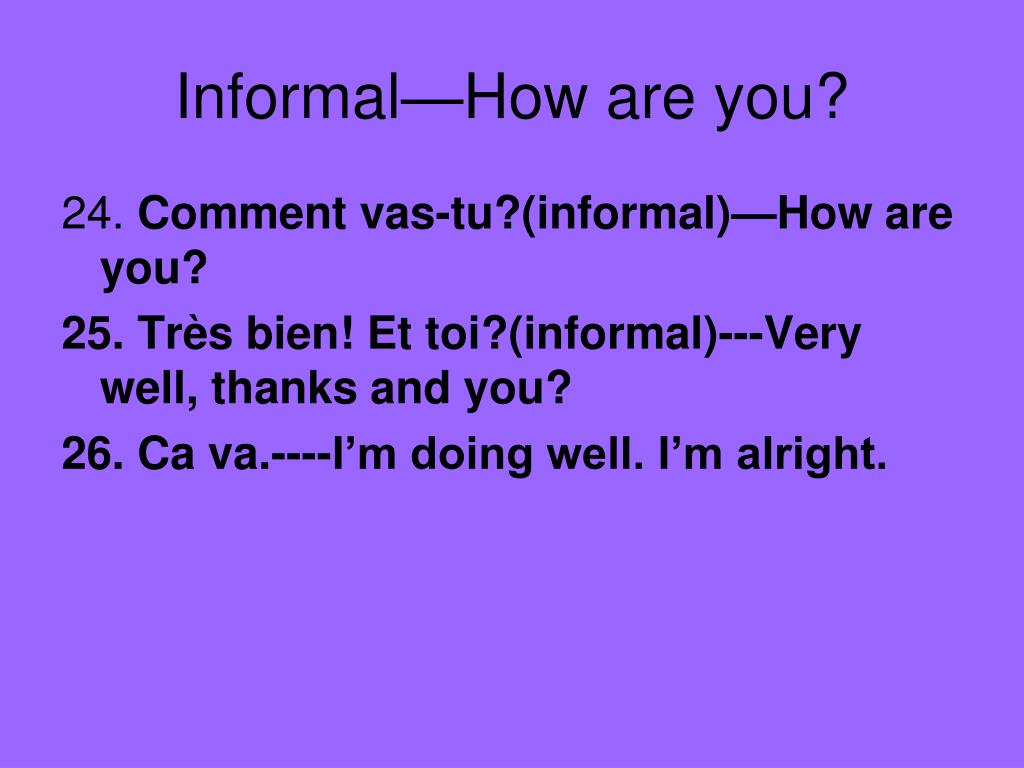How Are You In French Formal And Informal
How Are You In French Formal And Informal. Vous in summary, vous is the formal or plural form of you, while tu is the informal, singular form. For informal situations when you’re talking to someone you’re close with.

Formal ways of saying nice to meet you in french 2. There is a strict formal and informal code of conduct that is to be followed when speaking french. For informal situations when you’re talking to someone you’re close with.
Contracted ‘Tu’ In Informal French, ‘Tu’ When.
Granted, ça va is not the most formal. Use ‘tu’ only when you speak to. There is a strict formal and informal code of conduct that is to be followed when speaking french.
Use ‘Tu’ Only When You Speak To.
Either the premises are untrue or the argument is invalid. In english, we say “how are you”, but in french they say “how goes it”. ‘vous’ is used formally, while ‘tu’ is used informally.
Here Are 10 Ways To Reply To “How Are You?” In French.
For formal situations or when you’re talking to a group of people. You can use a less formal version of “hello” if you encounter the. This system of a singular/informal “thee” and plural/formal “you” is a common one, found all across europe, even today.
A Simple “Merci” Is Usually Enough For All Situations, But If You Want To Be Very Polite, You Can Add A “Madame” Or “Monsieur”, Or Develop A Little More And Say “Je Vous.
I would like to introduce _____ to you. The conclusion doesn’t really “follow from” (is not supported by) the premises. Vous in summary, vous is the formal or plural form of you, while tu is the informal, singular form.
Before We Go Into Discussing “ How Are You “, We First Have To Mention The Right Verb.
Most formal fallacies are errors of logic: If you are seeing someone for the first time of the day, use bonjour to say either “good morning” or “hello”. D’accord can be used in formal and informal situations to indicate you are okay with a suggestion.
Posting Komentar untuk "How Are You In French Formal And Informal"